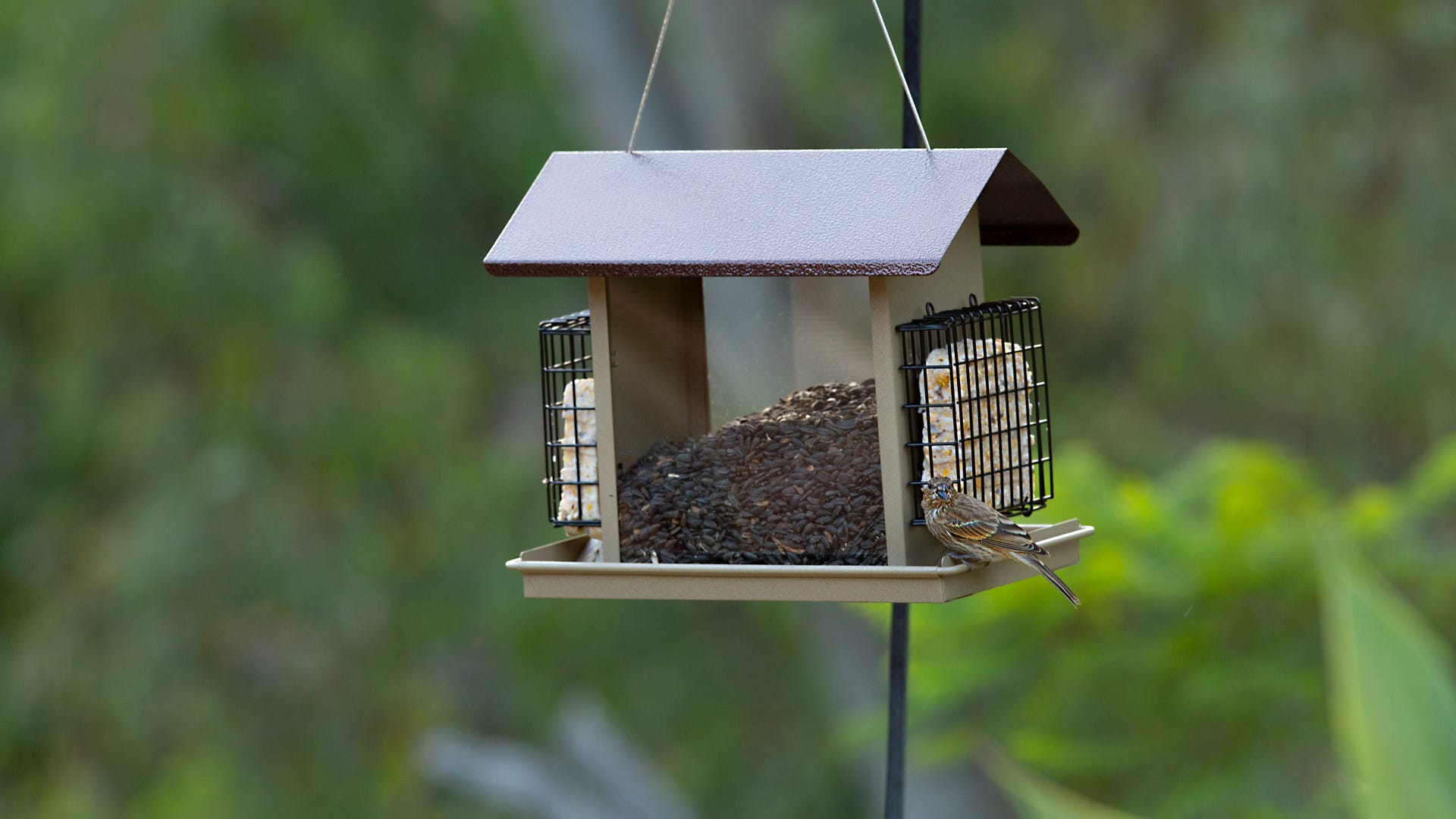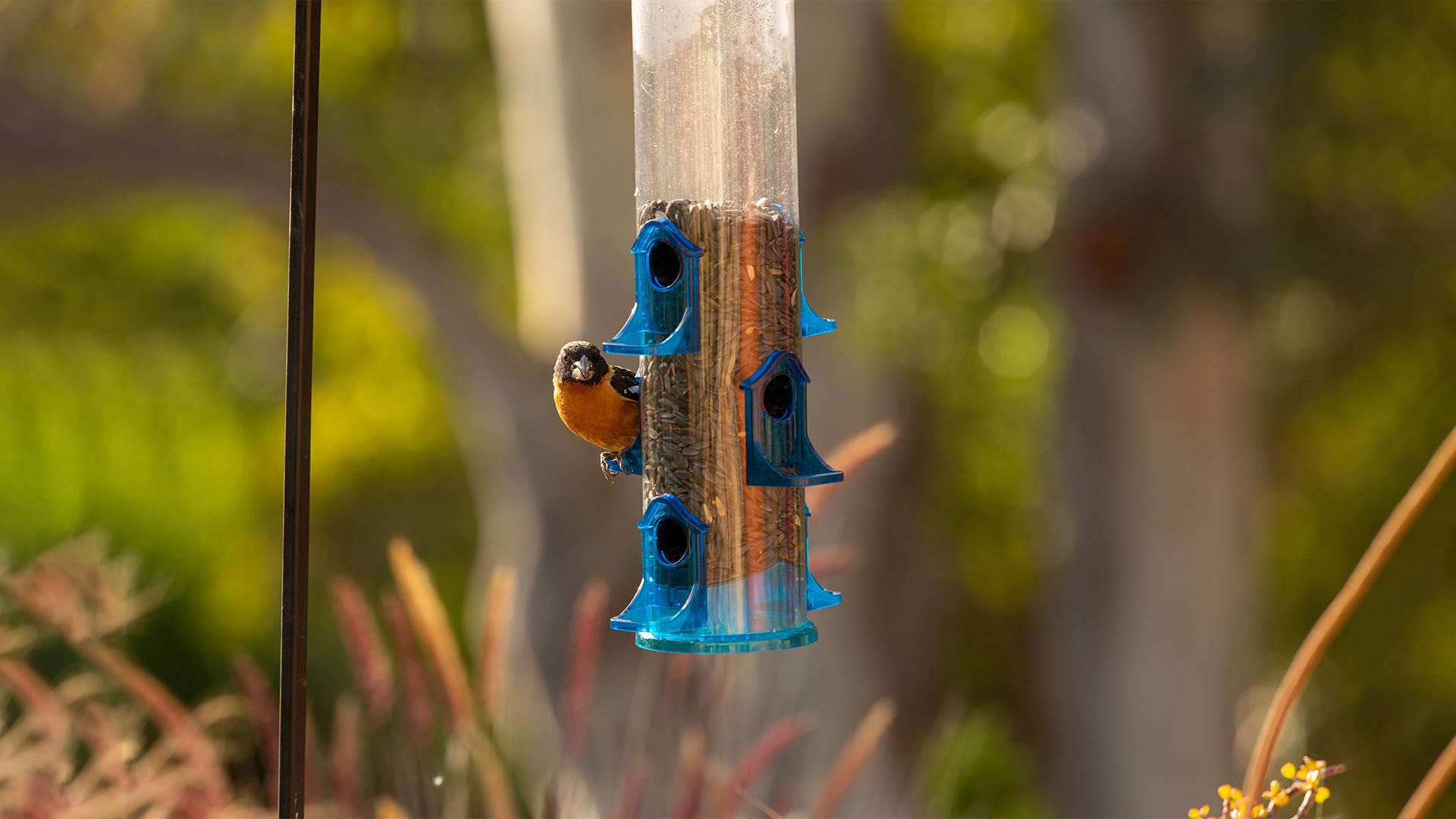Suet is a popular food to feed wild birds, but why? What makes suet such a great food for a variety of birds, and why do birders love it just as much?
About Suet
Suet is rendered beef fat, typically the fat from around the kidneys and loins. This fat is melted and skimmed several times to remove impurities, including bits of bone, tendon, and meat that remain in suet scraps. This helps refine the suet, and pure suet is best for birds. The refined suet may then be mixed with birdseed, bits of nuts or fruit, or even dried insects to offer more nutrition and attract more bird species.
Once mixed, suet is shaped into cakes, balls, plugs, or even whimsical shapes to be offered to birds. Softer suet may be used as a butter-like spread to feed birds, while some suet is cut into chunks, nuggets, or shreds to appeal to small birds.
See also: The Dos and Don’ts of Offering Suet to BirdsSuet offers many benefits to wild birds, and it is an ideal food for many backyard feeding stations. Birds that eat suet benefit from…
- Great Nutrition – Suet is high in fat and protein, as well as extra nutrients and minerals depending on what mix-ins are part of each specific blend. This is wonderful nutrition for both adult and immature birds.
- Fast Energy – Because suet is bursting with calories from fat, it is a quick source of energy for active birds. The refined fat in suet is also easily digestible, allowing birds to quickly convert the fat into usable energy.
- Concentrated Calories – Since suet is primarily fat, its energy is concentrated. This gives birds more energy even while eating less, which gives them more time for preening and other activities instead of foraging for less-efficient food.
- Easy Feeding – With no hulls to crack, rinds to peel away, or prey to hunt, suet is an easy food for birds to quickly grab from a feeding station The extra time can be spent preening, caring for chicks, or chasing off intruders.
- Replacement Protein – Just when insects are scarce, suet can provide supplemental protein for insect-eating birds that may have trouble finding food. This is especially critical in the fall and winter months for many resident birds.
Benefits Suet Gives Birders

Suet isn’t just good for small birds, however, it’s also good for birders. The benefits that suet brings to birders include…
- Diverse Birds – A variety of birds eat suet, including chickadees, bushtits, titmice, wrens, bluebirds, robins, cardinals, thrashers, woodpeckers, jays, nuthatches, and more. Offering suet brings the widest variety of birds to any feeding station.
- Versatility – Suet comes in many forms, from cakes and balls to plugs, nuggets, spreads, shreds, and whimsical forms to bring a bit of fun to the feeding station. This allows birders to offer suet in different types of bird feeders without needing a special suet feeder
- Fully Consumable – Suet is a no-waste food and birds will eat every bit of the offering without hulls to clean up or spilled seed that may grow into unwanted weeds. This ensures that the feeding area is kept cleaner and all food is utilized.
- Year-Round Feeding – Because suet is so useful for so many birds, it can be offered at bird feeders year-round. While some suet blends may soften or melt during the hottest months, there are no-melt varieties suitable for summer feeding.
- Affordability – Suet is inexpensive to buy, whether a birder chooses commercially prepared cakes or opts to make their own suet blends. This makes suet ideal for bird feeding on a budget without sacrificing nutrition or bird diversity.
With so many benefits for both birds and birders, it’s no wonder that suet is highly preferred by both at feeding stations. This excellent food is fun to offer and brings great joy to all the birds that nibble on it and all the birders who have the privilege of nurturing a hungry backyard flock.








